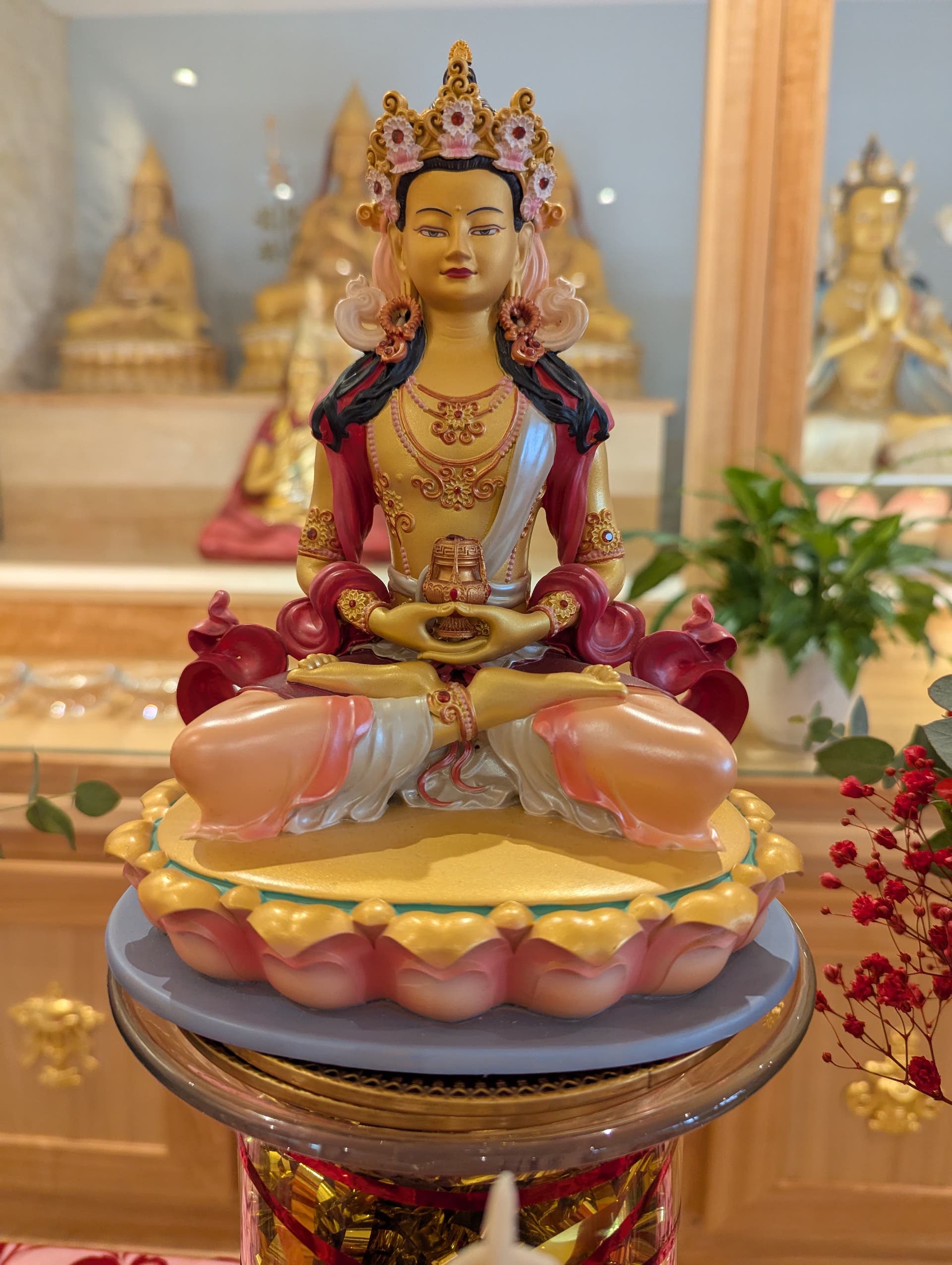The Blind Passions of “Love Is Blind”
Netflix’s Love Is Blind isn’t just melodramatic reality TV, says Rev. Jean-Paul deGuzman. It’s a mirror for our own attachments and delusions. The post The Blind Passions of “Love Is Blind” appeared first on Lion’s Roar.

When Love Is Blind premiered in 2020, 1.5 million viewers tuned in for the initial five episodes alone. It quickly became a Netflix fan favorite, and now there are seven American seasons, and versions have been produced around the world, including Japan, Mexico, and Sweden.
The show’s popularity stems, in part, from its premise, which plays on the old adage “love is blind.” Although we often interpret this saying to mean that love overlooks faults and imperfections, the series took the idea more literally: Can you fall in love with someone without seeing what they look like? While acknowledging that the term “blind” holds a profoundly different and deeply personal reality for those with visual impairments, I was prompted by this show to reflect on how we use the concept of “blindness” in Buddhism—particularly in reference to blind passions, or bonno in Japanese.
Those blind passions, which are often framed as the three poisons of greed, anger, and delusion, are frequently at play when it comes to our perceptions of physical attractiveness. In myriad ways, we’re all under pressure to conform to conventional—and unrealistic—standards of beauty and to seek romantic partners who align with these standards. Perhaps we feel greed as we chase those things or anger when we fall short. From a Buddhist perspective, all of this reflects delusion. We’re deluded if we divide the world into dichotomies such as attractive and unattractive, good and bad, desirable and undesirable.
To challenge these delusions, the thirty contestants of Love Is Blind communicate with potential mates in separate pods, divided by opaque screens. This setup encourages them to set aside societal noise and their own biases toward physical appearance while getting to know each other. They engage in small talk and flirt, but they also ask intimate questions to better understand each other’s values and priorities. Over time, only a handful of couples remain, while those who don’t form connections simply disappear from the narrative.
Suffering comes from attachment. So, what happens when the participants let go of their attachment to physical appearance as a defining feature of attractiveness? Will their connection be more genuine?
Once the contestants pair off, become engaged, and move in with each other, at best their relationship deepens. At worst, they face insurmountable conflict as they get to know each other’s real selves. The crescendo of each season occurs when couples stand at the altar, deciding in front of family, friends, and millions of viewers whether to marry or walk away.
A major surprise for first-time viewers of Love Is Blind is that some contestants form such strong bonds that they get legally married. Other contestants, however, reject their match as unworkable, or they face the sting of rejection. Emerging from the pods, contestants believe they’ve found someone who checks off all the proverbial boxes. Yet the truth of suffering arises in failing to recognize that the snapshot of the person they first met—like all of life—is subject to change.
Watching Love Is Blind often feels like driving past a car accident on the freeway—you know you probably shouldn’t look, yet you can’t resist. The show offers high amounts of melodrama, often fueled by the fact that the contestants always seem to have a glass of wine nearby. The internet apparently agrees. A quick Google search for “Love Is Blind” yields predictive terms like “Love Is Blind is for masochists,” “Love Is Blind is so cringe,” and “Love Is Blind is so stupid.” Meanwhile, media critics have labeled the series as “dystopian” or “pure trash.”
And yet, millions of viewers around the world tune in season after season—myself included! Part of the appeal comes from how easy it is to mock the contestants for baring their messiness on a global platform. They seem so unlike us. But in truth, we are them. Their blind passions are reflections of what governs all of our lives.
“Most of the contestants seem well-meaning, if a little desperate for companionship, which isn’t particularly rare,” writes critic Amanda Mull in The Atlantic. “The conflicts are blown up for entertainment value, but they’re mostly identical to the stuff of normal relationships—unlike most other dating shows, there are few hoops to jump through except engagement and marriage, which makes some of the drama distressingly familiar. All couples argue, and lots of them have the same argument over and over again. Defensiveness, poor communication, and hurt feelings have turned us all into jerks on occasion.”
We cling to what feels familiar—what we believe brings us happiness or protects our ego—when, in reality, these things often cause suffering for ourselves and those we love. As Shinran, the father of Jodo Shinshu Buddhism, expressed in “To the People of the Nembutsu”: “Your existence is one possessed of blind passions, and it is difficult for you to still your mind.”
Even though we don’t have cameras constantly recording us, we experience similar highs and lows. We navigate the precarious terrains of relationships—romantic or otherwise—often feeling anguish when we can’t relinquish our attachments to our best-laid plans.
Unlike the contestants on Love Is Blind, who may vanish from the narrative or face public rejection at the altar, not all is lost for us. Shinran elaborates in one of his poems known as wasans:
My eyes being hindered by blind passions,
I cannot perceive the light that grasps me;
Yet the great compassion, without tiring,
Illumines me always.
In other words, even though we may act as foolishly as the cast of Love Is Blind—or perhaps precisely because of that foolishness—something greater than our ego-selves embraces us and enables us to shed those blind passions. That something is the world of enlightenment, of limitless wisdom and compassion, that discriminates against no one.
In this sense, Love Is Blind holds up a mirror, allowing us to see our true, imperfect selves. Through this glimpse of our flaws, we may gain greater clarity and recognize that the light of wisdom continues to illuminate a path toward spiritual well-being for all of us.

Jean-Paul deGuzman is an ordained Jodo Shinshu Buddhist priest and an historian with a focus on comparative and relational racialization, urban history, Asian Americans and, most recently, American Buddhism.

 KickT
KickT 
































